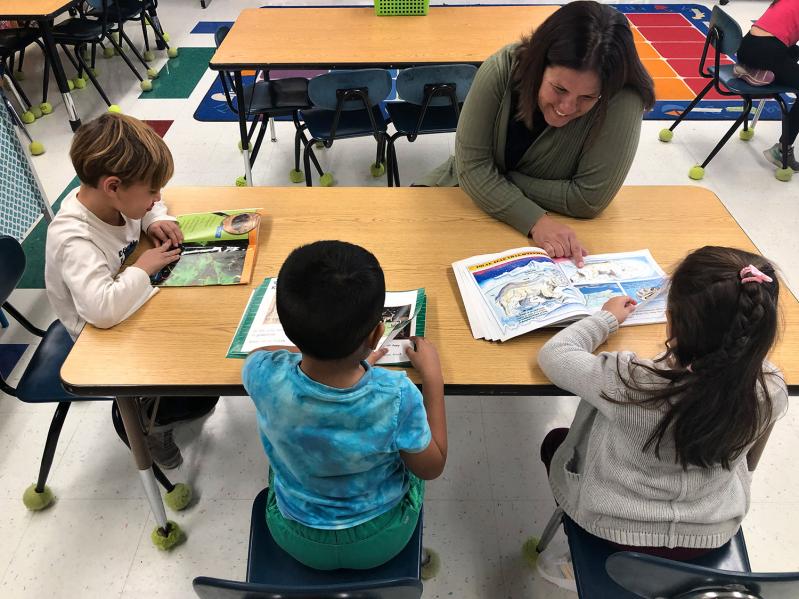Laura Rosner, a special education teacher at the John M. Marshall Elementary School in East Hampton, has a unique perspective when it comes to educating students with disabilities and diverse educational needs.
As a child growing up in Springs, Ms. Rosner was diagnosed with Stargardt’s disease, an incurable juvenile form of macular degeneration. She is now legally blind and draws on her own academic experiences to provide a meaningful experience for her students in the integrated classroom where she teaches.
She has also received a renewed National Board Certification — the highest honor a teacher in New York State can receive in the profession. Her story was recently featured by the National Board Council of New York State on its website, a rare honor.
“Thankfully right now my vision has been stable, but going through school as a student with a disability, I realized the importance of having teachers who are compassionate and understanding but still have high expectations,” Ms. Rosner said. “That’s why I became a special education teacher. Oftentimes, people with disabilities think they can’t do certain things.”
She was in fifth grade when she received the Stargardt’s diagnosis. It meant that she needed “accommodations” — an education-industry term meaning modifications that will allow a student to learn to his or her full potential — such as glasses and large-print textbooks. Accommodations are developed with input from parents, teachers, and professionals such as speech or physical therapists, and they are formally documented into a student’s individualized educational program, or I.E.P., as they’re commonly known. Schools are legally required to adhere to a student’s I.E.P. — which can be challenging when resources are limited or geographical location is taken into consideration.
“Every student and every learner is different, and we’re going to give them what they need to be successful, whether it’s a large-print book or a special cushion or different writing paper,” Ms. Rosner said.
She now uses computer software — purchased by the school district — that enlarges content on a screen. She also wears glasses that the kids call “rockstar glasses.”
“They know about my vision. I tell them, ‘If I’m not looking right at you, don’t be worried,’ “ Ms. Rosner said. “I definitely tell the parents about it. I put it out there so that people don’t feel uncomfortable.”
Becoming nationally certified entails a lot of legwork for teachers, who must build multiple portfolios documenting their students’ work and achievements, as well as their own relationships and accomplishments within the school and community at large.
For Ms. Rosner, who is in her 18th year teaching and 13th year at John Marshall, that included showing her work not just with students but also as a mentor for new teachers. She also participates in the school’s diversity, equity, and inclusion committee. Karen Kuneth, the school’s principal, said Ms. Rosner has made many meaningful contributions in those ways.
“She is a student advocate, so patient, and she’s an excellent communicator,” Ms. Kuneth said this week. “She knows how to assess and address her students’ needs as a special education teacher. . . . She’s a phenomenal mentor, and an available, open, and clear communicator. It’s a pleasure working with Laura.”
Ms. Kuneth has seen firsthand how Ms. Rosner turns her disability into a strength, saying that “she’s a role model to her students as somebody who is an example” of how to succeed despite challenges and obstacles.
In the integrated classroom, Ms. Rosner has both special education and general education students and works alongside Christie DeLigny, a newly tenured teacher who has been at the school for five years.
“I’ve learned a lot from her on every aspect of teaching, and the kids adore her,” Ms. DeLigny said. “She’s had similar experiences in her education, and so she’s always trying to share and do better for the kids.”
Reflecting on the National Board Certification, Ms. Rosner called it “the greatest professional growth opportunity” for teachers. “It gives you a chance to reflect on your own practice and how you can do better for the students in front of you,” she said. “It’s the highest level of certification that a teacher can hold in New York State, and I was able to succeed in this despite my disability.”

